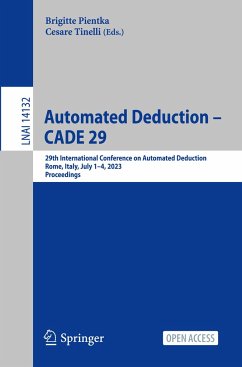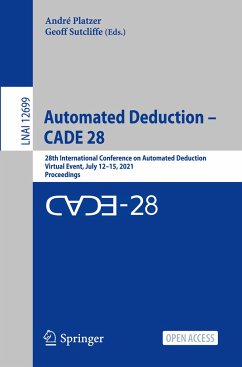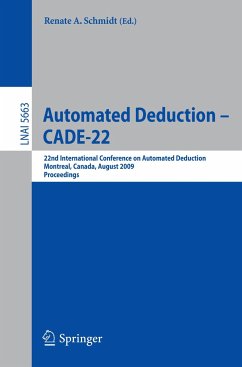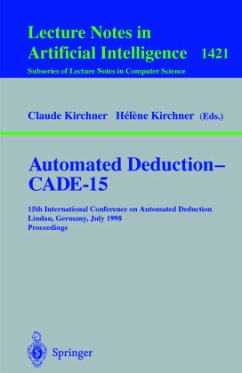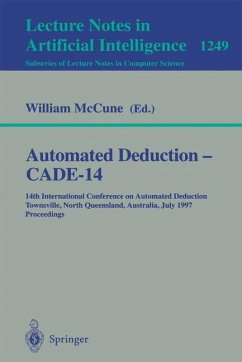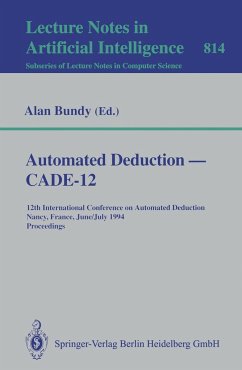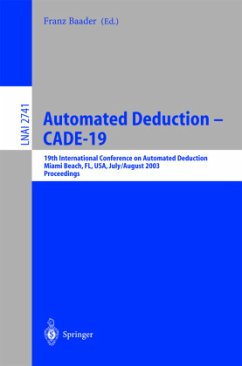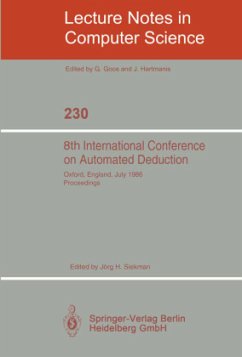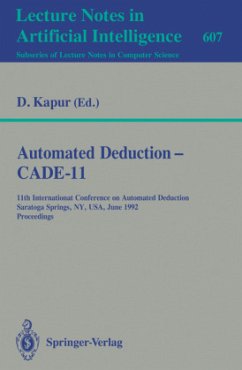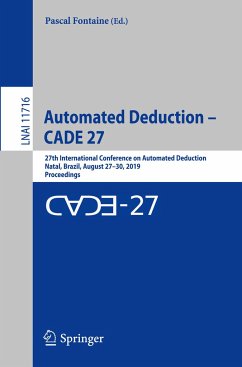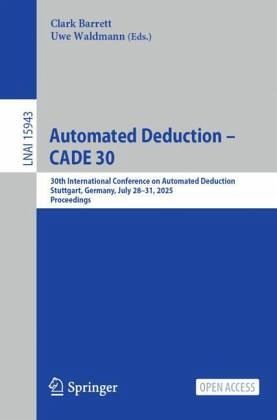
Automated Deduction - CADE 30
30th International Conference on Automated Deduction, Stuttgart, Germany, July 28-31, 2025, Proceedings
Herausgegeben: Barrett, Clark; Waldmann, Uwe
Versandkostenfrei!
Versandfertig in 6-10 Tagen
32,99 €
inkl. MwSt.

PAYBACK Punkte
16 °P sammeln!
This open access book constitutes the proceedings of the 30th International Conference on Automated Deduction, CADE 30, which took place in Stuttgart, Germany, during July 2025.CADE is the major forum for the presentation of research in all aspects of automated deduction, including foundations, applications, implementations, and practical experience.The 33 full papers and 4 short papers included in these proceedings were carefully reviewed and selected from 87 submissions. They were organized in topical sections on SMT; rewriting; formalizations in Isabelle/HOL; calculi; machine learning for a...
This open access book constitutes the proceedings of the 30th International Conference on Automated Deduction, CADE 30, which took place in Stuttgart, Germany, during July 2025.
CADE is the major forum for the presentation of research in all aspects of automated deduction, including foundations, applications, implementations, and practical experience.
The 33 full papers and 4 short papers included in these proceedings were carefully reviewed and selected from 87 submissions. They were organized in topical sections on SMT; rewriting; formalizations in Isabelle/HOL; calculi; machine learning for automated deduction; model checking and quantifier elimination; saturation; equational reasoning; non-classical logics; and SAT.
CADE is the major forum for the presentation of research in all aspects of automated deduction, including foundations, applications, implementations, and practical experience.
The 33 full papers and 4 short papers included in these proceedings were carefully reviewed and selected from 87 submissions. They were organized in topical sections on SMT; rewriting; formalizations in Isabelle/HOL; calculi; machine learning for automated deduction; model checking and quantifier elimination; saturation; equational reasoning; non-classical logics; and SAT.



